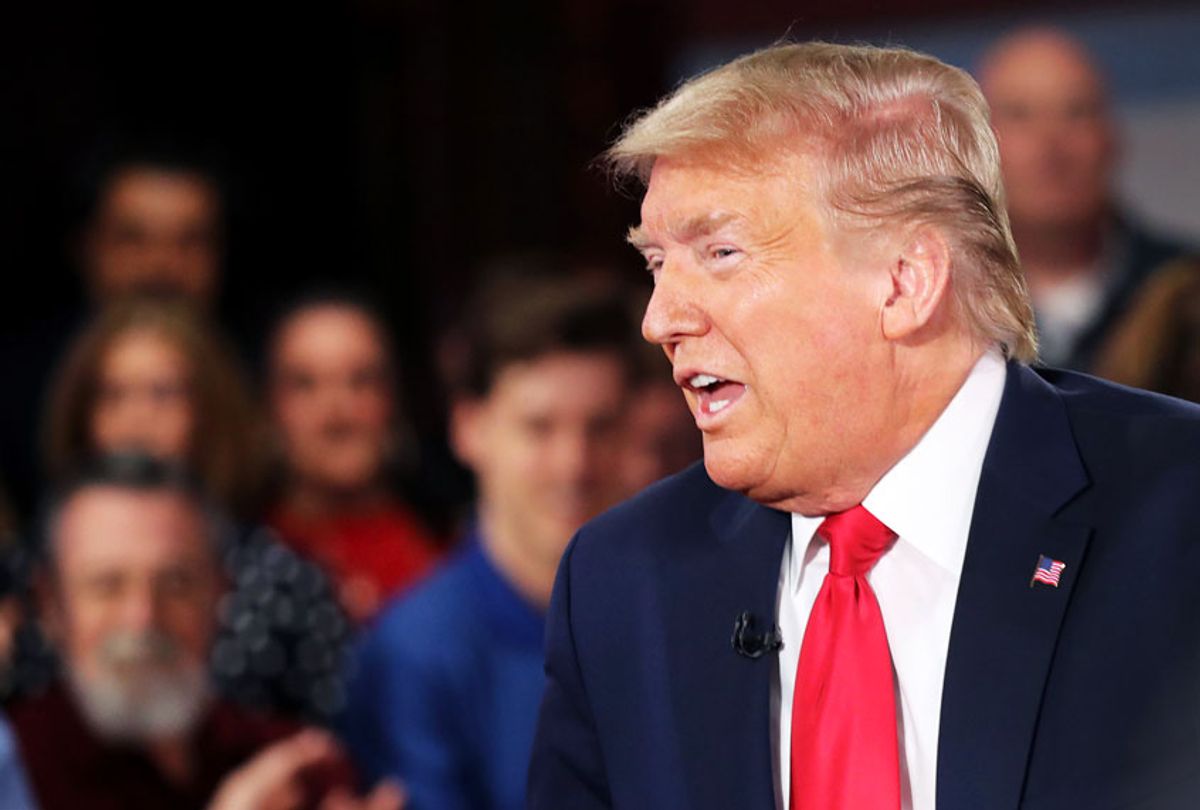The coronavirus has begun threatening elections. British prime minister Boris Johnson on Friday postponed U.K. local and mayoral elections for a year due to the outbreak. Louisiana, meanwhile, became the first state to reschedule its presidential primary, pushing it from April 4 all the way to mid-June.
The same fears led Wyoming Democrats to cancel the in-person portion of their April 4 caucus, but state law allows them to make a sensible adjustment: The entire caucus will now be conducted by mail, although voters can still drop off completed ballots at one of several collection centers.
Everybody should have that right. While rallies have been canceled, and candidates have halted door to door field operations, in a democracy, the vote must go on.
Voting by mail remains the safest and most common sense option: Americans should be able to exercise their civic voice without putting their health, or the health of others, at risk. It was chilling last Tuesday evening to watch voters queued in long lines across Michigan and North Dakota, while cable news scrolls below delivered news of dozens of colleges sending students home for the semester.
Yes, the election remains seven months away, but there are no good estimates on how long the nation may be disrupted. Some medical experts have warned that even if conditions improve during warmer summer months, the virus could still return in the fall.
That means the time to protect the election is now. As Dale Ho has pointed out in the New York Times, voting by mail would "mitigate disruptions to our democracy" and ensure every American can participate. As Rick Hasen has argued in Slate, this begins with Congress passing legislation that ensures that every American in every state has the right to vote by mail, no excuse necessary.
Right now, according to Stateline, 34 states allow voters to easily vote by mail; several western states vote only by mail. But the remaining 16 states offer mail ballots only under specific and limited conditions. "No excuse" absentee voting has advanced in Virginia and elsewhere this year, but congressional action would quickly level the playing field.
But that's the first step, not the last. There is a lot of work to do, and this is a heavy lift at the local, state and federal level. Election officials need time to make adjustments, retrain poll workers, and purchase optical scanners. We must consider how to protect the vote of minorities, Native Americans and others who may not live near a post office, or lack safe and reliable mail service. As I argued in the Washington Post this week, any movement toward vote by mail must also protect the foundational notion of one person, one vote, especially among historically disenfranchised communities. Too often, voting reforms have disregarded these citizens and their concerns.
As Ho also pointed out, many states will need to adjust their laws as well, to ensure, for example, that a deluge of mail-in votes can be counted in an orderly manner. In Michigan and Pennsylvania, two states that have expanded "no excuse" absentee voting since the 2018 election, state law does not allow these early votes to be processed before Election Day. (In total, 15 states have this restriction.) That could cause massive delays in reporting results with a deluge of mail-in votes — which is all the more important given how close those states were in 2016 and how critical they are likely to be again this fall.
Just imagine the scene: The president claiming victory in those states on election night off of limited totals, while fuller results over the ensuing hours tips the result to the Democrats. The chaos and cries of voter fraud are easy to imagine. So too is the impatience of the news media, accustomed to making "key race alerts" as soon as polls closed.
We can avoid that situation. And we need to avoid putting the conversation off and having this crisis worsen. An administration that has already granted itself extraordinary emergency powers could then begin to make the case that November's elections ought to be postponed. No president can use his powers in that way; Congress holds the authority to determine the date of a federal election. Nevertheless, this administration has stretched its constitutional authority and bucked long-standing norms with regularity, and just as disturbingly, federal courts have too often backed it up.
And even if Trump does not go that far, setting up vote by mail provisions now would guard against another scary option, that top election scholars Joshua Douglas and Michael McDonald have addressed: Key swing states activating a constitutional provision that allows state legislatures to pick Electoral College electors themselves ("in such Manner as the Legislature thereof may direct") and bypassing the people entirely.
All of this will require a national and nonpartisan effort to guarantee voting rights for all, something that has noticeably been missing from recent debates over election security, "voter fraud" commissions, and the impressive reforms included in the U.S. House's For The People act, which has languished on Mitch McConnell's desk for more than a year.
Let's start now. The other option cannot be allowed: Donald Trump must not be allowed to turn the public health crisis his administration bungled into an excuse to escape the verdict of the American people.



Shares